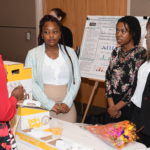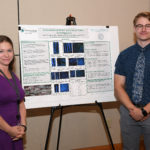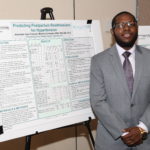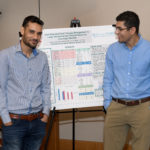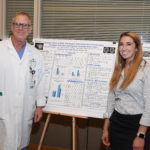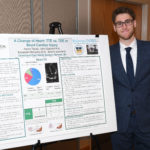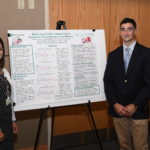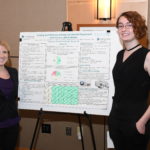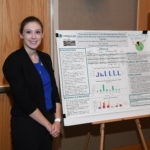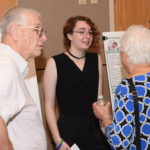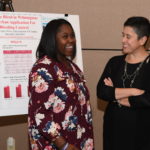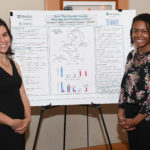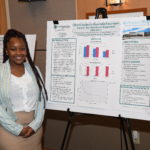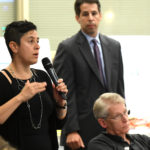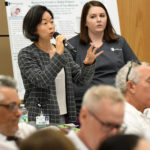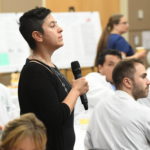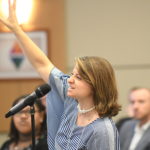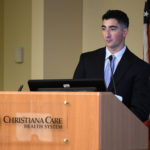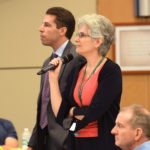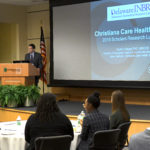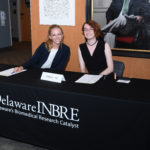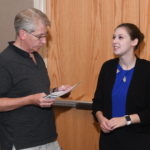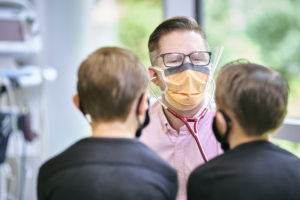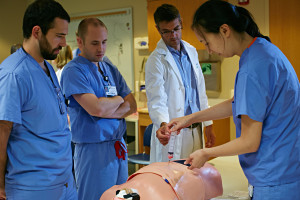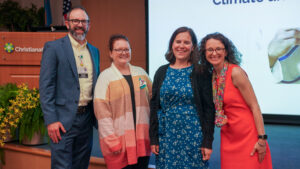Delaware INBRE is an acronym for the Delaware Idea Network of Biomedical Research Excellence, a collaborative network of the state’s academic, health care and research institutions that expands investigative efforts and offers a life-changing summer scholars program for talented undergraduates.
This year’s annual luncheon for INBRE scholars and mentors in August highlighted many successes of the program, particularly the Christiana Care mentors who have helped with the professional development of 152 undergraduate scholars involved in the program since 2005.
Increasingly, the summer scholars have been young people underrepresented in the research field, such as racial and ethnic minorities and students with disabilities, as well as low-income students, first-generation college students and veterans.
While studying to gain knowledge of experimental techniques, the summer scholars have made contributions to the biomedical field in Delaware and formed research partnerships with their mentors that are noteworthy experiences for the students.
Since INBRE was launched in Delaware, its effect has reached many areas of medicine and research at Christiana Care, strengthening the work of developing scientists and contributing to the expansion of research infrastructure, such as the Center for Translational Cancer Research and the Gene Editing Institute of the Helen F. Graham Cancer Center & Research Institute.
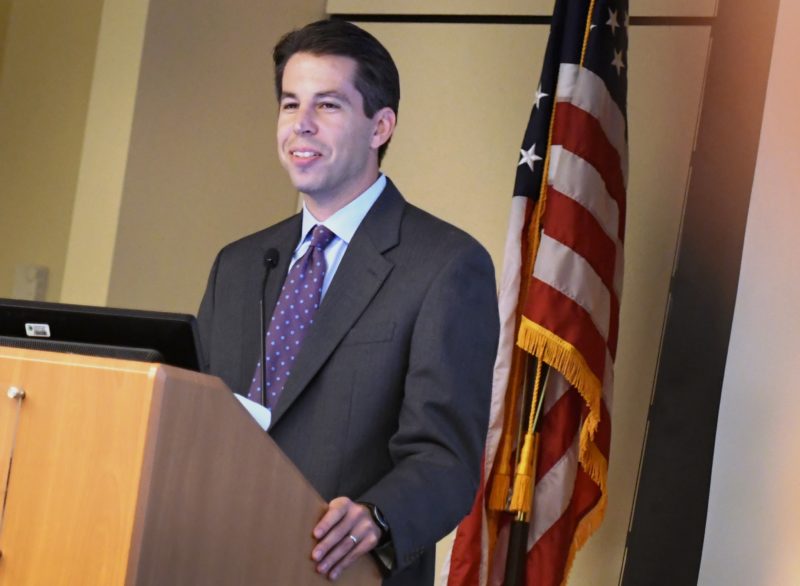
“We’re proud of what INBRE has done to advance translational and clinical research activities at Christiana Care and across the state,” said Scott Siegel, Ph.D., director of Population Health & Community-Based Research in the Value Institute and institutional lead for Delaware INBRE. “We are pleased that our mentors are given assistance with their clinically-focused research each year and delighted that our summer scholars have had significant experiences that have influenced them in selecting careers as researchers and clinicians.”
Building research capacity
The Delaware INBRE program runs from June to August and is supported with funds from a National Institute of General Medical Sciences Institutional Development Award and the state of Delaware. This year is the last of a five-year funding cycle, though there are hopes for renewal of funding for a new cycle starting in 2019. As part of the funding, Christiana Care has partnered with Delaware Technical Community College, Delaware State University, Nemours/Alfred I. du Pont Hospital for Children, the University of Delaware and Wesley College.
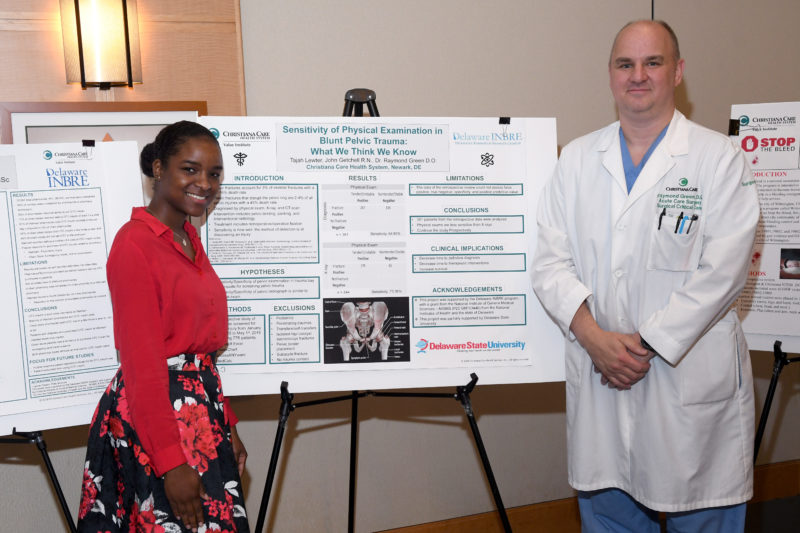
This summer Christiana Care sponsored 14 INBRE students and one INBRE-affiliated student. Their research looked at topics such as the use of ketamine for oral and facial surgery in the place of other pain medication, the sensitivity of physical examination in blunt pelvic trauma and a retrospective review of infections in injection drug users.
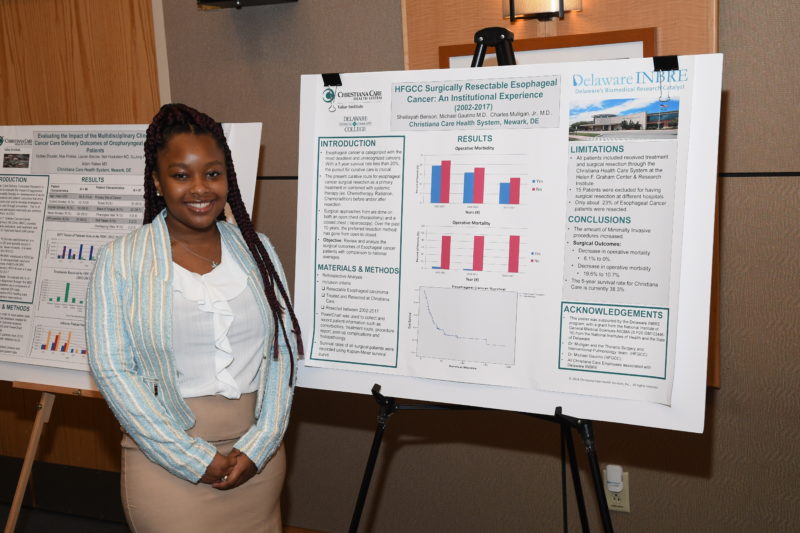
Shellayah Benson, a biological sciences student at Delaware Technical Community College, says that she has been updating the esophageal cancer registry this summer while also learning goal-setting, time management skills and how to handle a challenging work load.
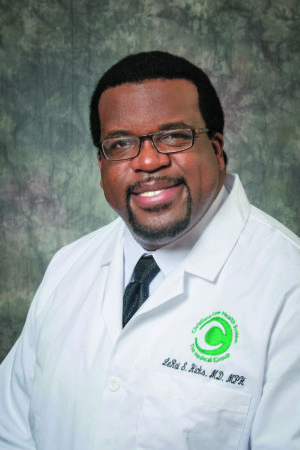
“I have learned a lot about professional responsibility which will be helpful as I move forward with plans to become a doctor,” Benson said.
In Delaware, INBRE helps build research capacity so residents can benefit from innovations in health care delivery and new technologies, said LeRoi S. Hicks, M.D., MPH, FACP, the Hugh R. Sharp Jr. Chair of Medicine, physician leader of Christiana Care’s Acute Medicine Service Line and physician leader of the Value Institute. “Without a program, like INBRE, a state can begin to lag in ground-breaking research that impacts the health of its residents,” said Dr. Hicks.
INBRE has supported the work of The Gene Editing Institute, which has formed international partnerships with biomedical research organizations to conduct transformative studies on the human genome with direct applications to cancer care. In fact, this is the only gene editing initiative embedded in a community cancer center.
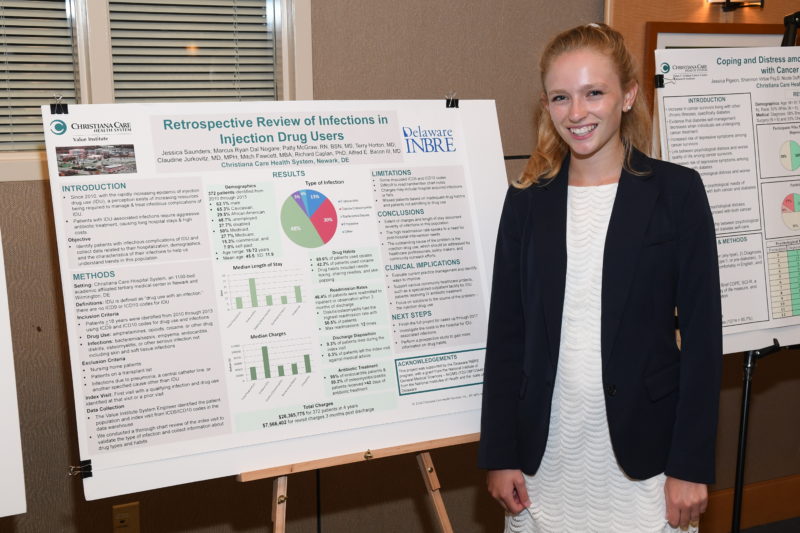
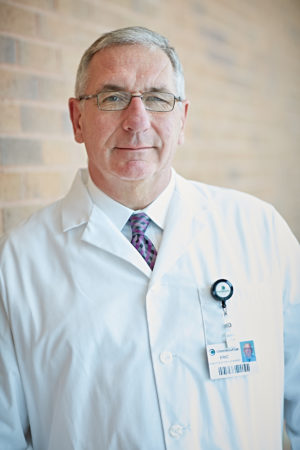
“The Gene Editing Institute has a strong working relationship with the leadership of the INBRE grant,” said Eric Kmiec, Ph.D., director of the Gene Editing Institute. “INBRE supported the development of the Genome Customization Core, which has grown dramatically, with corporate partnerships and university partnerships around the world. INBRE played an important role in establishing this core function which provides gene editing tools and consultation to a wide range of research laboratories. We look forward to continuing the interactions that have brought us this far.”
Through an innovative pilot grant, INBRE also has supported the research of Jennifer Sims-Mourtada, Ph.D., a senior research scientist and the director of Translational Breast Cancer Research in the Graham Cancer Center.
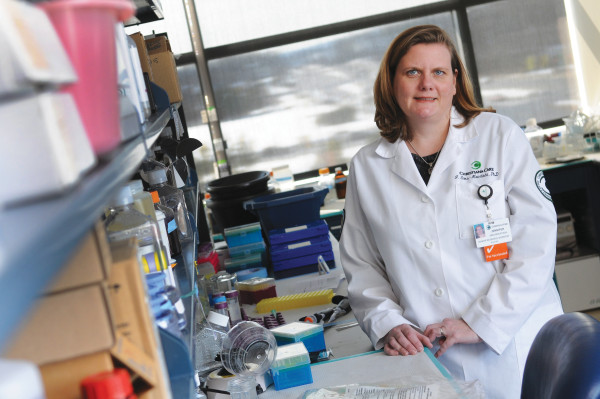
Dr. Sims-Mourtada is studying triple-negative breast cancer, which is not only aggressive, but is a cancer that affects younger women who are pre-menopausal. The cancer also disproportionately affects African-American women, who are underrepresented in genetic testing and clinical trials.
There is a high incidence of the cancer in Delaware, and understanding the mechanism of triple-negative breast cancer may lead to the identification of predictive biomarkers and better treatments. In addition, Dr. Sims-Mourtada has partnered with a research advisory group to improve outreach to African-American women.
In additional support of Dr. Sims-Mourtada’s research, INBRE helped fund a community discussion on the “Legacy of Henrietta Lacks and HeLa Cells” in 2015. Lacks was a poor African-American tobacco farmer who died of cervical cancer in a Baltimore hospital in 1951. But a few months before she died, a doctor removed a sample of her cancer cells. These were the first and most important line of human cells ever to survive and multiply indefinitely.
Lacks’ “HeLa” cells have played a role in major medical advances, but they were taken without her knowledge and without her permission, raising questions of the ethics of this action. The Lacks family also has grappled with this legacy and, as part of the Christiana Care’s community discussion, Victoria Baptiste, a great-granddaughter of Henrietta Lacks, took part, as did David Lacks Jr., a grandson of Henrietta.
“This was an important discussion, in that we talked about efforts within medicine to rebuild trust with the African American community so research can advance with a new transparency to benefit everyone,” said Dr. Siegel.
In April, INBRE helped fund an inaugural lung cancer symposium and the start of a multi-year commitment to reduce the prevalence, morbidity and mortality of lung cancer, the number one cause of cancer death in Delaware. As one of the leaders of this effort, Dr. Siegel says Christiana Care clinicians are forming partnerships with researchers, community stakeholders and public policy makers as they take a comprehensive approach in reducing the impact of lung cancer.
“With the help of INBRE we are launching new lines of research to reduce the devastating effects of lung cancer,” said Dr. Siegel. “That includes gene editing trials, lung cancer screening and work in smoking cessation.”
Inclusion of underrepresented populations
Career development has been a core component of Delaware INBRE. As the program has strengthened, Christiana Care leaders have increasingly sought to include underrepresented students as summer scholars and to provide additional hands-on training.
As a certified medical laboratory scientist, Megan Durrant attributes much of her professional drive toward excellence to the undergraduate research she pursued through the Delaware INBRE Summer Scholars Program at Christiana Care. The 10-week summer program gave the former Wesley College student an opportunity to be mentored by Timothy Manzone, M.D, J.D., CCD, section chief, Nuclear Medicine, and to conduct a retrospective assessment of hospital patients and their red blood cell volume, particularly peripheral hematocrit.
For Durrant, the program was a wonderful experience, focusing on her professional interests. “I was able to gain, not only educationally, but I was taught discipline, responsibility — and I have become a leader in my field,” said Durrant, a Bronx native, who is employed at New York-Presbyterian/Columbia University Medical Center. “Everything I did during my time as an INBRE student has helped shape me. Not only did the program allow me to do meaningful research, but it helped me determine what I wanted to do with my career.”
Today, more than 50 percent of students selected are from underrepresented populations, such as racial and ethnic minorities, students with disabilities, low-income students, first-generation college students and veterans. This is of consequence because the lack of opportunities for lab research beyond the classroom have been a barrier to underrepresented students, along with a lack of mentors, said Dr. Hicks. He says that the experience of being a mentor is rewarding for many of the Christiana Care faculty.
“Personally, I benefited greatly from being a mentor, not solely from my having research questions advanced, but to have the opportunity to really engage with students and help them professionally,” said Dr. Hicks.
In his view, INBRE is essential in developing a diverse pipeline of researchers in the state. “All the data that exists on the impact of science on human health suggests that diversity in the scientific workforce translates into better questions being asked — questions that are relevant to the health of the populations we serve,” he said.
How have students used these opportunities?
Here are two examples:
Jordan Brockwell speaks of herself as a non-traditional college student, in that she was married with one child and had a second on the way when she began her studies at Wesley College, after serving in the Air Force.
As a first-generation college student, she was looking for direction in how to navigate college and focus her aspirations. Delaware INBRE helped.
“During my 2017 internship, I was given the opportunity to work under the mentorship of Dr. Yukiko Washio in OB-GYN research at Christiana Care,” said Brockwell, who graduated from college in May. “I volunteered my time after the internship to continue this research, because INBRE taught me the importance of networking and creating your own personal brand. This networking turned my volunteer work into a full-time job with Christiana Care as a research assistant on a study under Penn Medicine.”
Working with pregnant women on the research project has further focused Brockwell’s interests, and when the project is complete, she plans to apply to the Midwifery Institute at Thomas Jefferson University to become a certified midwife.
“INBRE opened my eyes to the various types of research and taught me that research is not only for labs,” said Brockwell, who is grateful to INBRE for expanding her horizons.
Andre Jones says that, as an African-American brought up in Philadelphia by a single mother, he was pleased to graduate from the Philadelphia school system and have this opportunity open to him. He went to Wesley College and focused on biology and medicine. There he also met Malcolm D’Souza, Ph.D., a professor of chemistry and an associate dean of interdisciplinary/collaborative research, who helped Jones become a Delaware INBRE scholar in 2015.
During the summer program, Dr. Hicks served as a mentor and helped Jones hone his professional interests. Together they worked on a project to evaluate U.S. News & World Report rankings as they apply to internal medicine.
Because of this challenging experience and the encouragement of Dr. Hicks, Jones’ interest in health research grew, and the following summer he became a health equities summer scholar in the Nemours Office of Health Equity and Inclusion, where he concentrated on health disparities in science-based research.
Jones is an administrative assistant with Christiana Care Hospitalist Partners. He is attending Wilmington University to pursue his master’s degree in business administration. He hopes to advance his career at Christiana Care, working to reduce health disparities and improve patient care.

